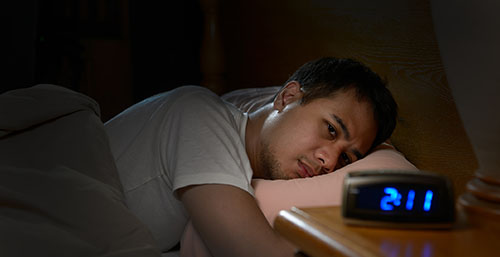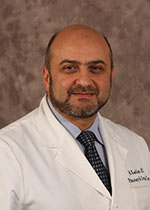

Dr. Muhammad Kashlan
Perhaps the biggest myth is we sleep solely to rest our bodies. In reality, though, a lack of quality sleep can lead to depression, high-blood pressure, heart disease, type 2 diabetes, unpleasant moods, lowered testosterone and even weight gain.
"Yes, when we sleep we rest a tired body," said Dr. Muhammad Kashlan, MD, FCCP, Medical Director, McLaren Lapeer Region Sleep Center and board-certified sleep specialist. "But there is so much more we get from solid sleep. One being that the brain locks into memory what we've learned during the day and re-builds energy stores. We are really undervaluing the importance of a full night's sleep."
The vast majority of the population requires seven to nine hours of sleep each night. Without it, our bodies do not function at full capacity. There are five stages of sleep-first four allowing the mind to consolidate memories, transitioning them from recent to long-term memories, while the fifth is the REM (rapid eye movement) cycle. This all important stage is the one in which we dream, and a lack of REM sleep diminishes our disposition, increasing anxiety, irritability and difficulty in concentrating.
"There is not just one factor, whether it be clinical or behavioral, that leads to poor sleep," Dr. Kashlan said. "The one true thing, though, is that it can always be remedied. Practicing proper sleep hygiene is paramount and is the first topic that I have to address in my patients when we discuss sleep problems or diminished overall health."
Limiting the kinds of foods-and how much-you eat later in the day and evening, getting moderate exercise during the day, relaxing with limited stimuli before bed and setting a proper mood in the bedroom will all aid in getting better quality, more beneficial sleep.
If that still doesn't do it, making an appointment with your doctor to talk about your concerns will help medically treat any remaining issues.
To learn more about the benefits of sleep and the McLaren Lapeer Region Sleep Center, visit mclaren.org/lapeersleep.